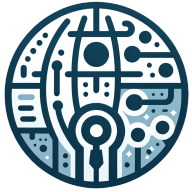The landscape of human resources is constantly evolving, with global HR leadership trends at the forefront of this change. As businesses expand their reach across borders, the role of HR leaders becomes increasingly complex and significant. This blog post will delve into these trends, shedding light on the challenges and opportunities they present. We will explore how these trends are shaping the future of HR leadership on a global scale.
The Rise of Remote Work and Its Impact
Remote work has surged in popularity, largely due to the global pandemic. This shift has brought about significant changes in the way HR leaders operate. They now face the challenge of managing a dispersed workforce, ensuring productivity, and maintaining a cohesive company culture.
The rise of remote work has also necessitated a shift in recruitment strategies. HR leaders are now tasked with sourcing talent from a global pool, rather than being limited to a specific geographical location. This opens up a wealth of opportunities for businesses, allowing them to tap into diverse talent and skills.
However, managing a remote workforce is not without its challenges. HR leaders must ensure that employees feel connected and engaged, despite the physical distance. This requires innovative approaches to communication, collaboration, and team building.
The Growing Importance of Diversity and Inclusion
Diversity and inclusion have become key priorities for businesses worldwide. HR leaders are now tasked with creating an inclusive workplace culture that values diversity. This involves implementing policies and practices that promote equality and prevent discrimination.
Diversity and inclusion are not just about ticking boxes. They are about creating a workplace where everyone feels valued and respected, regardless of their background, race, gender, or age. This requires a shift in mindset and a commitment to continuous learning and improvement.
HR leaders play a crucial role in driving this change. They are responsible for educating employees about the importance of diversity and inclusion, and for creating a safe and supportive environment where everyone can thrive.
The Shift Towards Employee Well-being
Employee well-being has become a key focus for HR leaders. They recognize that happy, healthy employees are more productive and engaged. This has led to a shift in HR policies and practices, with a greater emphasis on mental health, work-life balance, and overall well-being.
HR leaders are now tasked with creating a supportive work environment that promotes well-being. This involves implementing flexible work arrangements, providing mental health support, and encouraging regular breaks and downtime.
However, promoting employee well-being is not a one-size-fits-all approach. HR leaders must take into account the individual needs and circumstances of their employees, and provide tailored support where necessary.
The Role of Technology in HR
Technology is playing an increasingly important role in HR. From recruitment and onboarding to performance management and employee engagement, technology is transforming the way HR leaders operate.
HR leaders are now leveraging technology to streamline processes, improve efficiency, and enhance the employee experience. This includes the use of HR software, AI, and data analytics.
However, the adoption of technology also presents challenges. HR leaders must ensure that they are using technology in a way that is ethical and respects the privacy of their employees. They must also keep up-to-date with the latest technological advancements and trends, and be prepared to adapt and evolve as necessary.
The Need for Continuous Learning and Development
In a rapidly changing business environment, continuous learning and development are crucial. HR leaders must ensure that their employees have the skills and knowledge they need to succeed.
This involves creating a culture of learning within the organization, where employees are encouraged to upskill and reskill. HR leaders must also provide opportunities for professional development, such as training programs, workshops, and mentorship programs.
However, promoting continuous learning and development is not just about providing opportunities. It's also about recognizing and rewarding effort and achievement, and creating a supportive environment where employees feel motivated to learn and grow.
The Emergence of Ethical Leadership
Ethical leadership is becoming increasingly important in the business world. HR leaders are now expected to uphold high ethical standards and to promote ethical behavior within their organizations.
This involves implementing ethical policies and practices, and ensuring that they are adhered to. HR leaders must also lead by example, demonstrating ethical behavior in their own actions and decisions.
However, promoting ethical leadership is not just about enforcing rules and regulations. It's also about creating a culture of integrity and respect, where employees feel empowered to speak up and take action when they see something that is not right.
The Future of Global HR Leadership
The trends in global HR leadership are shaping the future of the profession. From the rise of remote work and the growing importance of diversity and inclusion, to the shift towards employee well-being and the role of technology, HR leaders are at the forefront of these changes. They are tasked with navigating these trends, overcoming challenges, and seizing opportunities. As we move forward, it's clear that the role of HR leaders will continue to evolve, becoming more strategic, complex, and significant than ever before.

